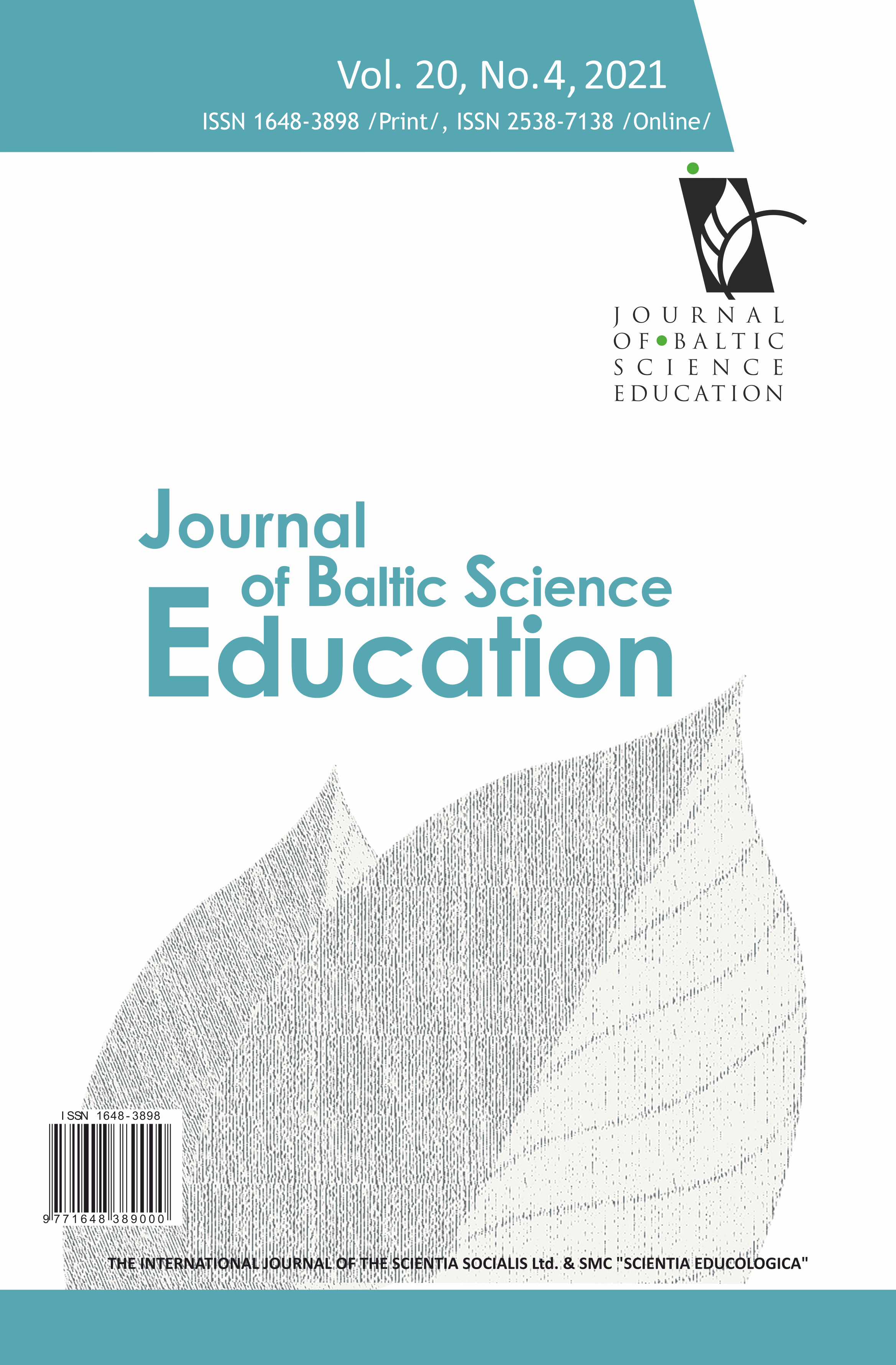THE EFFECT OF USING COMPUTER SIMULATIONS ON GRADE 11 LEARNERS’ PERFORMANCE IN PLANTS BIODIVERSITY IN SOUTH AFRICA
THE EFFECT OF USING COMPUTER SIMULATIONS ON GRADE 11 LEARNERS’ PERFORMANCE IN PLANTS BIODIVERSITY IN SOUTH AFRICA
Author(s): Israel Kibirige, Kgashane Bethuel BodirwaSubject(s): Social Sciences, Education, School education
Published by: Scientia Socialis, UAB
Keywords: computer simulations; Solomon Four-Group Design; learners’ performance; Talk and Chalk Method (TCM);
Summary/Abstract: Teachers use different pedagogies to improve learners’ performance. The study explored the effect of Computer Simulations (CS) on Grade 11 learners’ performance when taught Plants Biodiversity. A Solomon Four-Group design was used to cater for internal and external validity. Sixty-six learners were assigned to two Control Groups (CG) taught using CS and 66 learners to two Experimental Groups (EG) taught using Talk and Chalk Method (TCM). The pre-test was administered to EG1 and CG1, while post-tests were administered to all four groups. Focus Group Discussion Interviews (FGDI) were conducted with 12 learners: six from EG and six from CG. Quantitative data were analyzed using a T-test, Analysis of Variance (ANOVA), while qualitative data were analyzed using thematic analysis. The results show that EG outperformed CG (T-test; ANOVA; p < .05). Boys’ and girls’ performance in EG did not differ significantly, suggesting that CS favour both gender to perform well. CS positively influenced EG learners’ attitudes towards Biodiversity topic, but not CG. Thus, CS is an effective tool for enhancing learners’ performance.
Journal: Journal of Baltic Science Education
- Issue Year: 20/2021
- Issue No: 4
- Page Range: 612-621
- Page Count: 10
- Language: English

